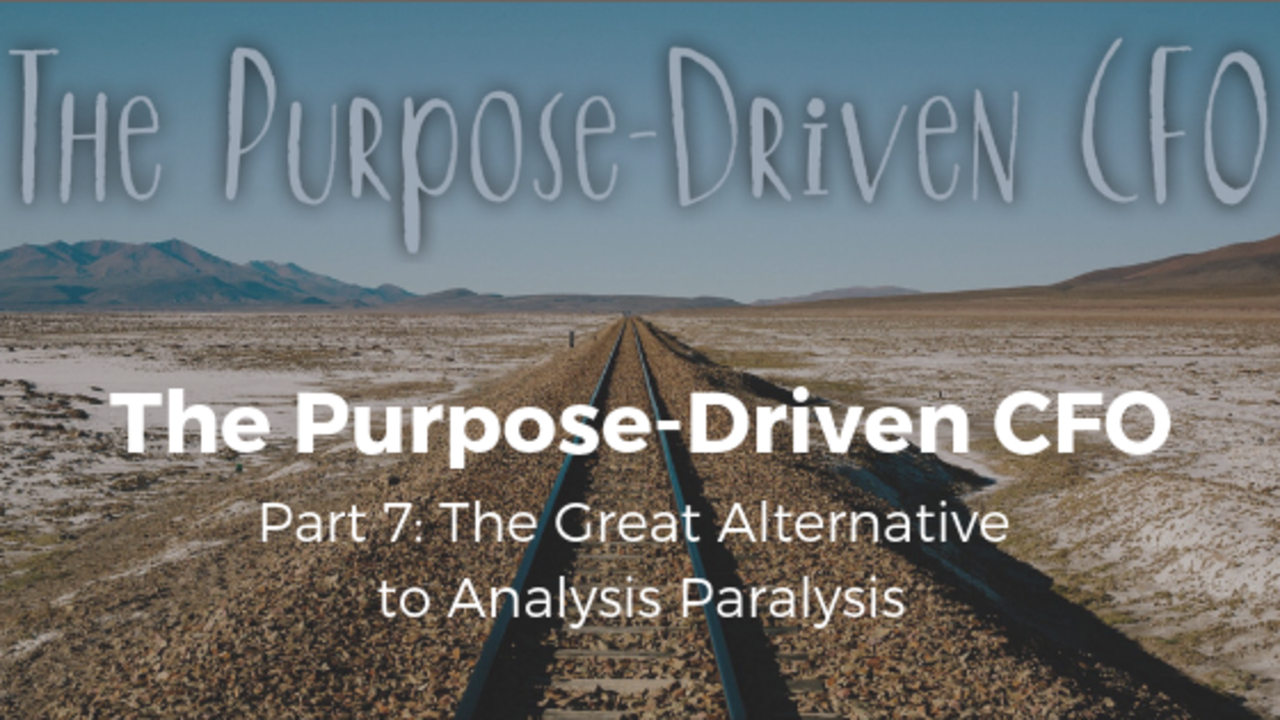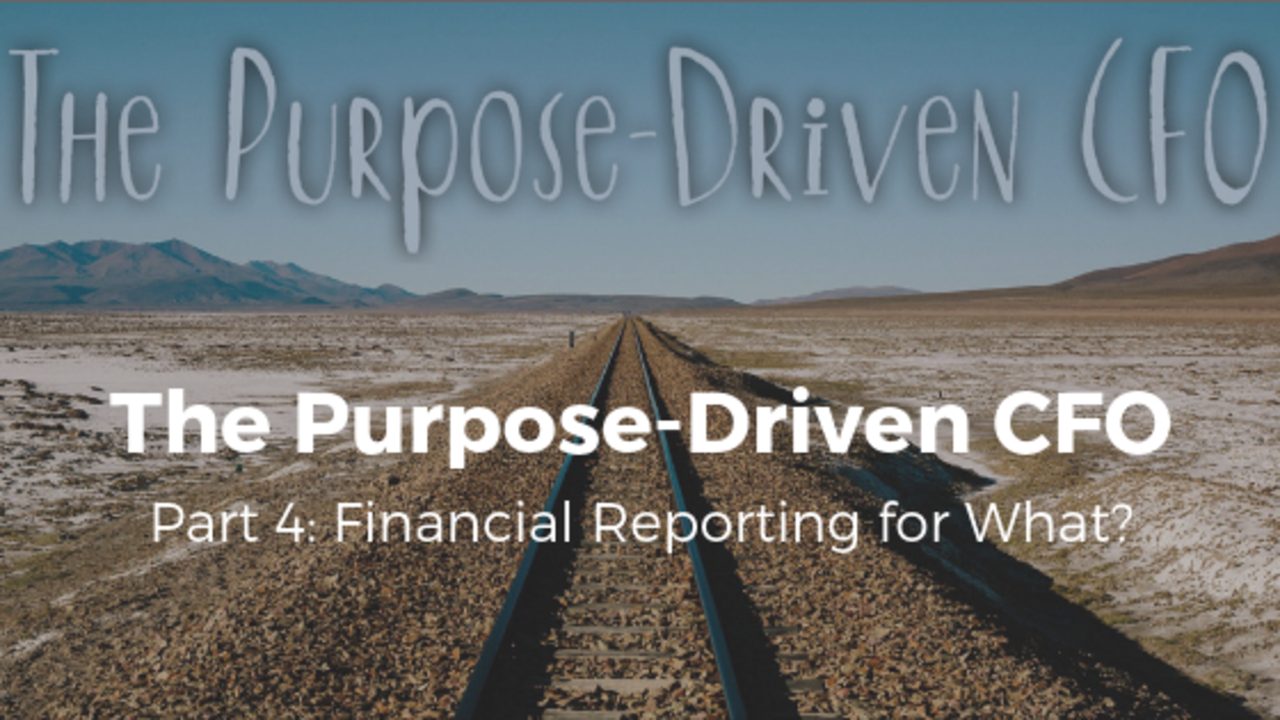Let's stop messing about with project budgeting!

By Andy Burrows
Budgeting creates problems for projects in business.
Projects are often something of an anomaly for Finance when it comes to expenditure control and resource allocation. At least that’s the way that it’s felt.
The problem, however, is really budgetary control.
When I was doing management reporting for functional expenditure areas, that’s what I used to feel with projects.
And the problem was that we were trying to manage project expenditure in the same way as every other kind of expenditure.
We’d create cost centres for projects as if they were business departments. That would mean the nomination of a cost centre manager, and the inclusion of the project costs within the ‘actual vs budget’ variance analysis each month for each function.
When it came to forecasts, we’d collate the data in the same way as every other cost centre. And we’d challenge their forecasts, and their spending against budget in the same way as every other cost centre.
And that meant project...
All forecasts are wrong - so what?

By Andy Burrows
“Does anyone in FP&A ever review the accuracy of their predictive financial models from time to time?” That’s the question I posed on LinkedIn a while back, and it generated a good discussion. And it turns out that FP&A professionals generally care quite a lot about the accuracy of their forecasts.
One of the businesses I worked in was strongly linked to the travel industry. So, our business tended to fluctuate seasonally. But we never seemed to be able to get our P&L and volume forecasts right. It was low margin, high volume business. So, volumes made a big difference. It was so frustrating trying to predict things like the effect of Easter being early or late, public holidays, school holidays, and other factors like the economy, the weather, and exchange rates.
When we did variance analysis, the Managing Director would get frustrated with us, because sometimes the explanation for a variance would be that we’d neglected to include a factor in the forecast that we r...
How to Develop KPIs That More Than Count

By Andy Burrows
[First published 7th September 2017]
This article looks at how to go about developing Key Performance Indicators (KPIs).
If you’re interested in this topic enough to start reading, you’ll know that KPIs give you a richer view of performance than the normal accounting stuff that we produce in Finance. You’re also probably painfully aware that there are so many metrics to choose from. And that can make you wonder whether you’re looking at the right things.
So, the common question is, how can we develop the right KPIs?
But, before we get to that, I want to do through three things:
- Give a simple definition of a KPI
- Clear up a couple of misconceptions
- Take a stab at a description of what a good KPI is
That should head us in the right direction…
What are KPIs?
A simple definition of a Key Performance Indicator is that it’s just a specific way of seeing how well things are going with something. That sounds quite general, but I’ve started that way deliberately, s...
Why Financial Modelling Skills Will Be A Big Career Door Opener For Emerging Accounting and Finance Talent

This article is written by financial modelling specialist, Lance Rubin. You can find more of Lance's work at https://www.modelcitizn.com/
Background
If you have recently been for a job interview or at least just taken a small peek through the door called opportunity then you may have noticed something emerging regarding a new key skill requirement, which you may or may not have.
Irrespective of your level, financial modelling skills have become one of the most highly sought after for finance professionals today.
Good news for candidates is there is short supply and huge demand. There was certainly no shortage of opportunities when I was looking for a job recently, but I decided to use this shortage to consult to many different companies rather than just one as their employee.
Bad news is if you are in a finance team and never built or know what a 3-way model is, then you have lots to learn and to catch up on. A 3-way model refers to the 3 financial statements namely an Income Stat...
Driver Based Planning and Forecasting in the Context of FP&A

This article is written by financial modelling specialist, Lance Rubin. You can find more of Lance's work at https://www.modelcitizn.com/
Background
When I first came across the term driver based planning and forecasting I was confused.
As an ex-investment banker having joined a Finance team the concept of drivers when talking about a forecast or plan was simply assumptions.
Why was it not called just that? Assumptions! Investment bankers have been building models with assumptions ever since the first model was built and a corporate transaction was negotiated.
So what’s all the excitement about driver based planning. It’s simply a financial model with assumptions to drive decisions..no?
Driver Based vs Assumption Based
Why give assumptions a different name i.e. a driver, why not just call it assumption based planning?
Ultimately a plan or a forecast is a collection of assumptions both in the numbers that are input into the model but also assumptions around logic construction, w...
Financial Modelling: Diamonds in the Rough

This article is written by financial modelling specialist, Lance Rubin. You can find more of Lance's work at https://www.modelcitizn.com/
Background
Why is it so hard to find Finance staff with good financial modeling skills?
Surely all accountants and professional finance people are good financial modelers?
When I was leading a large team within the Finance function of a major Australian bank it was difficult to find good modeling skills.
This isn't just a skills gap in banks but across all Finance teams in corporates and small to medium sized entities.
It's nobody’s fault, we were never trained and everyone just got tips off the resident "Excel expert" in the team. There is always one...Or we used Google and learnt from Chandoo and YouTube videos to solve problems in spreadsheets….just like you solve anything really…YouTube saviour.
When joining a company it was expected that everyone knew how to use Excel with a high degree of competency in Financial Modeling.
But the proble...
The Purpose-Driven CFO Part 7: The Great Alternative to Analysis Paralysis

By Andy Burrows
[First published 21st April 2017]
[This article is also on LinkedIn - why not "Follow+" Andy and give the article a "like"?]
If you’ve seen the earlier articles in this series, you’ll know that I’ve been using what I’m calling a “purpose-driven” perspective to draw out useful insights into the work of the Finance function. My thesis is that being explicit about the reasons why we do things, not only boosts motivation and engagement within the team, but actually affects the way we do them. The introductory article that explains the thinking behind the approach.
So far, I’ve covered budgeting, strategy, reporting, projects and internal control.
This time round I want to take a look at why we do financial analysis.
What Do Analysts Do?
What is ‘financial analysis’? As I thought about that question as a starting point, it occurred to me that it’s difficult to define financial analysis in general terms. If I think about any of the analysis I’ve done, or my teams have...
The Purpose-Driven CFO Part 4: Financial Reporting for What?

By Andy Burrows
[First published 6th March 2017]
[This article is also on LinkedIn - why not "Follow+" Andy and give the article a "like"?]
This is part of a series of articles looking at Finance activities, and basically asking 'why?' The premise is that understanding why we do things helps us to do them better. It may even fundamentally change the way that we do them. If you haven't seen it already, take a look at the introductory article that explains the approach I'm taking: The Purpose-Driven CFO Part 1: Why be Purpose-Driven?
I’ll give you the links to the other articles in the series at the end.
What Do You Mean, “Why”?
Of all the areas of activity in Finance, the one that is probably most taken for granted (aside from transactional activities such as invoicing and Accounts Payable) is Financial Reporting. I’m guessing that even asking the question, “why do we do financial reporting?”, would get quizzical looks. What do I mean, why? It’s just something we do. If we didn’t ...
You Don’t Have to be in FP&A to be a Finance Business Partner

By Andy Burrows
[First published 28th February 2017]
It is becoming fashionable nowadays to identify some roles in Finance as Finance Business Partner. It’s intended to emphasise the need for managers in the business to have a strong understanding of financial performance. And therefore, the Finance function ought to provide people who can come alongside business managers, providing financial insight and understanding.
I have been known to express my unease with the use of the term Business Partner. For one thing, it suggests that we are somehow separate from the business. We can only partner the business. So, it always seems to trigger a little internal irritation in me when I hear people say, “we’ll need to consult with the business”, or some such thing. But for another thing, it suggests that business is all about strategic decision making, and somehow the mundane things don’t matter. So only special people get to be “business partners”.
But my purpose in this article isn’t to ...




